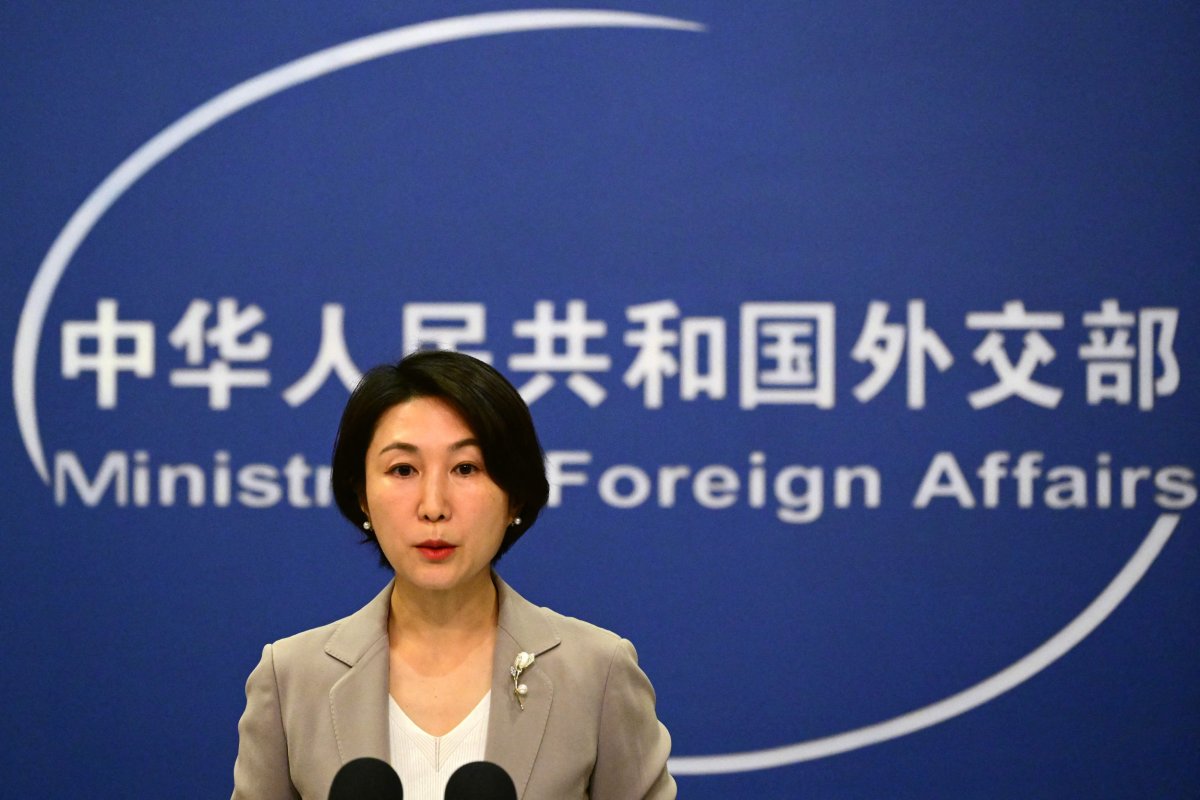An Israeli diplomat in China has criticized Beijing for its allegedly weak official position on the latest Israel-Palestinian conflict.
"China is deeply concerned over the current escalation of tensions and violence between Palestine and Israel. We call on relevant parties to remain calm, exercise restraint, and immediately end the hostilities to protect civilians and avoid further deterioration of the situation," said a statement by the Chinese Foreign Ministry on Sunday.
Beijing has taken a neutral stance regarding the latest conflict in Israel and has historically backed Palestine's aspiration to statehood without offering any official support for Hamas.
China repeated its long-held position by renewing calls for a "two-state solution."

"The fundamental way out of the conflict lies in implementing the two-state solution and establishing an independent State of Palestine," said the Chinese foreign ministry.
Israel expected to see a "stronger condemnation" of Hamas from Beijing, Yuval Waks, a senior official at the Israeli embassy in Beijing, said in response on Sunday, according to Reuters.
"When people are being murdered, slaughtered in the streets, this is not the time to call for a two-state solution," Waks told reporters.
Israel expected 'stronger condemnation' of Hamas from China, Beijing embassy official says https://t.co/LSiShVbM0L
— Yuval Waks (@WaksYuval) October 8, 2023
"On the Palestine-Israel conflict, China has always been on the side of equity and justice. As a friend to both Israel and Palestine, what we hope to see is the two countries living together in peace," said Mao Ning, Chinese foreign ministry spokesperson, when asked about Waks calling out China's position.
"It's not surprising that China has taken this position regarding the Israel conflict. It's similar to China's position on Ukraine," Alfred Wu, Associate Professor at Lee Kwan Yew School of Public Policy in Singapore, told Newsweek.
"China is unlikely to change its position in the coming days and will remain neutral on the developments in Israel," said Wu.
Tuvia Gering, researcher at the Tel Aviv-based Diane & Guilford Glazer Israel-China Policy Center, said much like its stance on Russia's invasion of Ukraine, Beijing would avoid specifically mentioning Hamas when talking about events in Israel.
"Notice that the same language, full of false equivalencies ("China calls all sides"...), the use of euphemisms ("special military operation"), and no direct condemnation of the hostile party, was used for a Chinese statement in February 2022, when Russia launched an unprovoked and illegal invasion of a sovereign country. Nineteen months into the war in Ukraine, they can't even call it an invasion," Gering told Newsweek.
Meanwhile, Chinese netizens have closely watched developments in Israel as they expressed shock over gruesome deaths seen over the past few days.
On Monday, the hashtag "Palestine-Israel conflict has caused thousands of deaths" had been viewed 43 million times on Chinese social networking site Weibo.
There has been significant interest in the conflict on the Chinese social media platforms.
The search trend "260 dead in Hamas attack on Israeli music festival" was the number one trend on the Chinese search engine Baidu. A hashtag based on the same trend was ranked as the sixth-most popular search trend on Weibo.
Chinese nationals discussed the story of Noa Argamani, an Israeli national of Chinese descent, who was abducted by Hamas and is being held hostage in Gaza.
However, the Chinese government sought to shut down the discussions about Argamani, with the hashtag "Israel says a mixed Chinese Israeli girl has been kidnapped" being censored on Weibo.
"In accordance with relevant laws, regulations, and policies, the content of this topic is not displayed," said a notice the social media platform.
On Sunday, the Israeli embassy in Beijing posted about Argamani's abduction.
"Noa is of Chinese-Israeli descent. Noa was attending a peace music festival in southern Israel when Hamas terrorists kidnapped her and dragged her from Israel to Gaza. She is a daughter, a sister, and a friend," wrote Israel's embassy in China on their Weibo account.
In a separate post on Weibo, the Israeli embassy said: "Hamas = ISIS."
"When my colleagues inquired about a Chinese-born Israeli girl who had been kidnapped and taken to Gaza, Noa Argamani, they essentially told us that she was not a Chinese citizen and it's your problem," Gering told Newsweek.
The Chinese foreign ministry has avoided directly commenting on Argamani.
"I have noted relevant reports. We have always opposed violence and attacks against civilians," said Mao when asked about Argamani.
Meanwhile, according to Chinese state media, three Chinese nationals are known to have been injured, and four are currently missing in Israel. On Monday, the Chinese Foreign Ministry was asked about plans to repatriate Chinese nationals stuck in Israel.
"The Chinese Embassy in Israel and the Office in Palestine have issued emergency security alerts to maintain contact with local Chinese citizens and make every effort to ensure the safety of Chinese citizens and institutions. The Ministry of Foreign Affairs reminds Chinese citizens not to travel to Palestine and Israel for the time being," said Mao Ning, the Chinese foreign ministry spokesperson.
In response to Hamas' attack, the U.S. has announced further military aid for Israel.
"China's position on this issue is consistent. We always believe that dialogue and negotiation are the fundamental way to solve the problem," Mao said when asked about the U.S. military aid. "We call on all parties to cease fire and stop the war as soon as possible to avoid further escalation of the situation."
Uncommon Knowledge
Newsweek is committed to challenging conventional wisdom and finding connections in the search for common ground.
Newsweek is committed to challenging conventional wisdom and finding connections in the search for common ground.
About the writer
Aadil Brar is a reporter for Newsweek based in Taipei, Taiwan. He covers international security, U.S.-China relations, and East Asian ... Read more
To read how Newsweek uses AI as a newsroom tool, Click here.








